Patty’s Perspective
Posted on November 29, 2021
Beliefs, Child, disability, education, Health, International, marginalized, stigma, vulnerable
Patty Prasada-Rao is one of the warmest people you’ll ever meet. She has a big smile and an even bigger heart. When I sat with her for an interview earlier this year I knew we had a lot of ground to cover, as she’s been involved with Kupenda for nearly 2 decades as a Board member, child sponsor, volunteer and donor. Patty also provides the unique perspective of someone who has visited our work in Kenya, served on many nonprofit Boards, and who helps to lead her family’s nonprofit in India. In this interview, Patty shares her views on how Kupenda’s local leadership and community driven solutions have made its work effective in improving the lives of children in need.
How and when did you first get involved with Kupenda?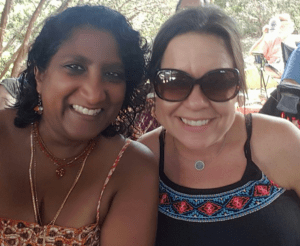
I first got involved with Kupenda because I met Cindy [Kupenda’s founder] at Faith Christian Fellowship Church. I had just returned from being almost a year in India… helping with a school my family had started in my grandfather’s village. I was excited to find someone else in the church doing international work and feel like Cindy and I just kind of gravitated towards each other because we had so much in common with her work in Kenya and mine in India.
So you were both starting your non-profits around that time.
Yes, I was working with my family to start [Pria Ministries]… My background is in community which embraces a philosophy that values local leadership. It’s about honoring local customs and cultures. And, in my case, it came from a faith perspective, from God’s love in my heart and a Biblical call to this work. It wasn’t about proselytizing, evangelism straight up, but was about serving God’s people, especially in places of need. And in Cindy, I immediately found someone who resonated with that philosophy of work.
Did your nonprofits have a lot in common?
Cindy pushed me individually to think about disability in India connected to what we were doing. The similarities between India and Kenya are so great. For example, disability is seen as a curse in India, it’s hidden away in India. There is a sense of shame in the family, a lack of support for families, ignorance in the church, etc. All of these things were parallels and it helped to talk about them with Cindy.
And then in the years that followed you seem to have become very close.
[Yes, in 2003] we had a mutual friend who got married in Oregon. When they put folks together for housing, I got to share a room with Cindy. We also sang a song that neither of us knew before for the wedding. I don’t think we stopped talking the whole time there! That was where we learned so much more about each other. It was the best gift that our friend could have given to us, because from that moment on, Cindy became one of my soul friends.
So in the beginning you were a volunteer and later you visited Kenya and became a child sponsor – what made you decide to start sponsoring?
Once you volunteer, you tend to get more engaged and more involved. Then you end up asking, ‘Well what else can I do?’ Being a volunteer with an international organization, there is only so much you can do on this side of the globe. And so a tangible way to actually be involved on the ground is by being a child sponsor.
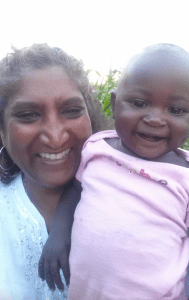
What would you say to people who might be interested in visiting Kenya like you did but might not be able to right now because of the pandemic?
Many of us have a longing to be able to go and different things limit us at different times. So one thing I would tell folks who can’t go right now is that, if you aren’t a child sponsor yet, then become a child sponsor now! It is a definite way to know that you are actually tangibly doing something.
And for those who are able to go to visit our work in Kenya?
[If you do] get a chance to go, it’s more important to listen and watch. Be aware, if you’re not used to seeing folks in poverty with disabilities, it can be gut wrenching a little bit. Your heart will hurt. It’s really helpful to have someone you can process some of that with because it can be a little overwhelming.
But if that’s all you see, you’ll miss out, because what you will also see is incredible joy! You might think, “How could anybody have that much joy when they are crawling on the ground because they can’t walk?” But the children in the schools where Kupenda works will dazzle you with their amazing joy and perspective on life. Just enter into it and let them transform you. I think anyone who gets a chance to go will come back blessed, with a different view on life, seeing things in America differently than they did before.
Is there that you saw, either in Kenya or have learned as part of the Board that you think is particularly effective about Kupenda’s work?
One of the biggest strengths of Kupenda is the real value of local leadership. Everything that Kupenda does is done under the leadership of Leonard [our Kenyan director] and his team [at Kuhenza]. What happens with donor funds is really led by the priorities of [the Kenyan team] on the ground. You and I both know that a lot of organizations say that, but then when you get on the ground, it’s not that way… the power resides with the Westerners. But Kupenda is exactly what it says: It is led by local leadership on the ground at every level… we as a U.S. board actually submit what we do to the Kenyan leadership..
Why do you think local leadership is so important?
My background is in public health community development and health education, where there is a concept of “felt needs.” It’s about the folks on the ground being the ones who have the say in what needs to happen. The people with the problem are usually the best people to talk about what the solutions are. Not the people who have the money, but the people who are dealing with the problem and the issue… I have not found [another] international development [organization] where this has been practiced so incredibly, truthfully, and well. I have yet to find it from either small nonprofits or a big, large conglomerate organizations.
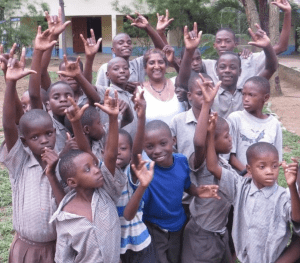
As Board member, what have you seen in Kupenda’s operations that supports this local leadership value?
A lot of people talk about a partnership from the West… but if you get a chance ever to watch Cindy and Leonard on a phone call together or in person together, leading something together, it is true equal partnership. And they both can call each other out if there is something that has happened, they both can encourage each other, they both speak truth to each other, they both know how to hold each other up when things are hard. I have seen the tears in Cindy’s eyes when something happens on the ground and even for what happens with Leonard and the staff team. And I have heard Leonard’s voice and how he passionately cares about us here [in the U.S.] and those on the Board and what we do. There is just a true partnership.
And how does Kupenda ensure there is local engagement in our strategic planning, reporting and finances?
The board gets financials monthly, which include what’s happening on the ground in Kenya. So the staff in Kenya already regularly report on the financials. We don’t have to wait for the end of the year to see if there are any issues. Then, as we’re getting ready to project for next year’s budget, Leonard and his Kuhenza team talk about what the strategic priorities are on the ground in Kenya as they develop their own work plan. They submit their priorities to us, then Kupenda’s staff reflect that in the budget that is presented to us as a board.
Why do you think Kupenda and our Kuhenza have worked so well together to implement this work for the past 20 years?
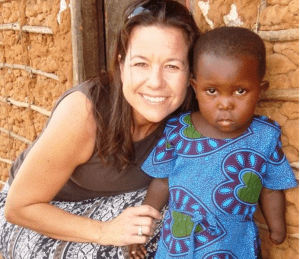
Neither entity makes a decision unilaterally without the other. So Kupenda won’t make a decision without Kuhenza’s input and vice versa. We have a commitment that policy, leadership and management will be coordinated together. We are real partners. Right now it also resides in the relationship of our Directors, Cindy and Leonard. It doesn’t matter how big Kupenda gets, these values of partnership, integration, the local folks really owning it, those have to stay.
When you think about all these years with Kupenda, is there one anecdote or moment that sticks out to you where you were particularly moved by the work?
When I was in Kenya, I got to see Cindy with Joyce, for those who don’t know Joyce is a young girl who has the same disability as Cindy. At first Joyce was just being a little shy, but then got so excited to see Cindy. There is something special about the connection that these two have. And to know that the same belief, hope, and life that was given to Cindy, is what she is making sure that other children are being given. But it’s not just Cindy giving it, she started this non-profit as a way for other children to encounter that same belief and hope that they can be anything they want to be, that they have no limitations in their God-given potential, that they can dream to do whatever they want, and nothing can hold them back. That moment in Kenya with Cindy and Joyce was profoundly beautiful for me.
What do you wish for Kupenda’s future?
Our work has expanded in [many] ways over the last few years – exponentially multiplying what we are doing, not just on the ground in Kenya, but also the reach that we have in other countries. And the possibility of helping other non-profits to expand the work they are doing, or have never done, with disability is what I dream of. I think it’s going to take a lot more of us walking alongside the very small staff at Kupenda to be able to make this happen. So my wish is that [others] would consider getting involved – join us!
How can people become involved in supporting Kupenda and helping these children like you have?
Kupenda needs faithful people who are willing to walk the long journey with us. That could be financially, offering to host things, to share the word with other people, to be willing to sponsor a child… we are still looking for Board members, other people who might be interested, so if somebody reading this, listening to this is interested, again, I would say you won’t be sorry for this commitment, it will change your life. And in the process you will know that you’ve impacted many other lives.
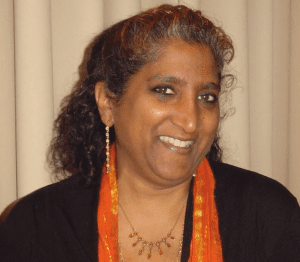
Is there anything else you want to say about this journey that you’re on with Kupenda?
First of all, I would say that giving financially to Kupenda is one of the best investments that one could make. It is a solid non-profit, with real, tangible, work on the ground, and the impact of every dollar is multiplied. It goes so much further than just one individual child or one individual person getting medical needs met, or a wheelchair. We do that and they are blessed, but in addition, we are working to dispel false beliefs — whole communities, lives, churches have been transformed because of the truth that children with disabilities are not cursed, but blessed. That there is hope and life for them. These children are active members of a community and society. The work is not quick. It’s a journey and we are honored to be here for the long haul.
Want to keep updated on Kupenda’s work?
You can follow us on Facebook, Instagram, LinkedIn, and Twitter.
And please also sign up for our monthly newsletter and updates here.
If you’re interested in supporting one of the many children we serve, head over to our sponsorship page to learn about how you can make a difference for just $30 / month.
You can also help children with disabilities stay safe and healthy during COVID-19 by donating here.
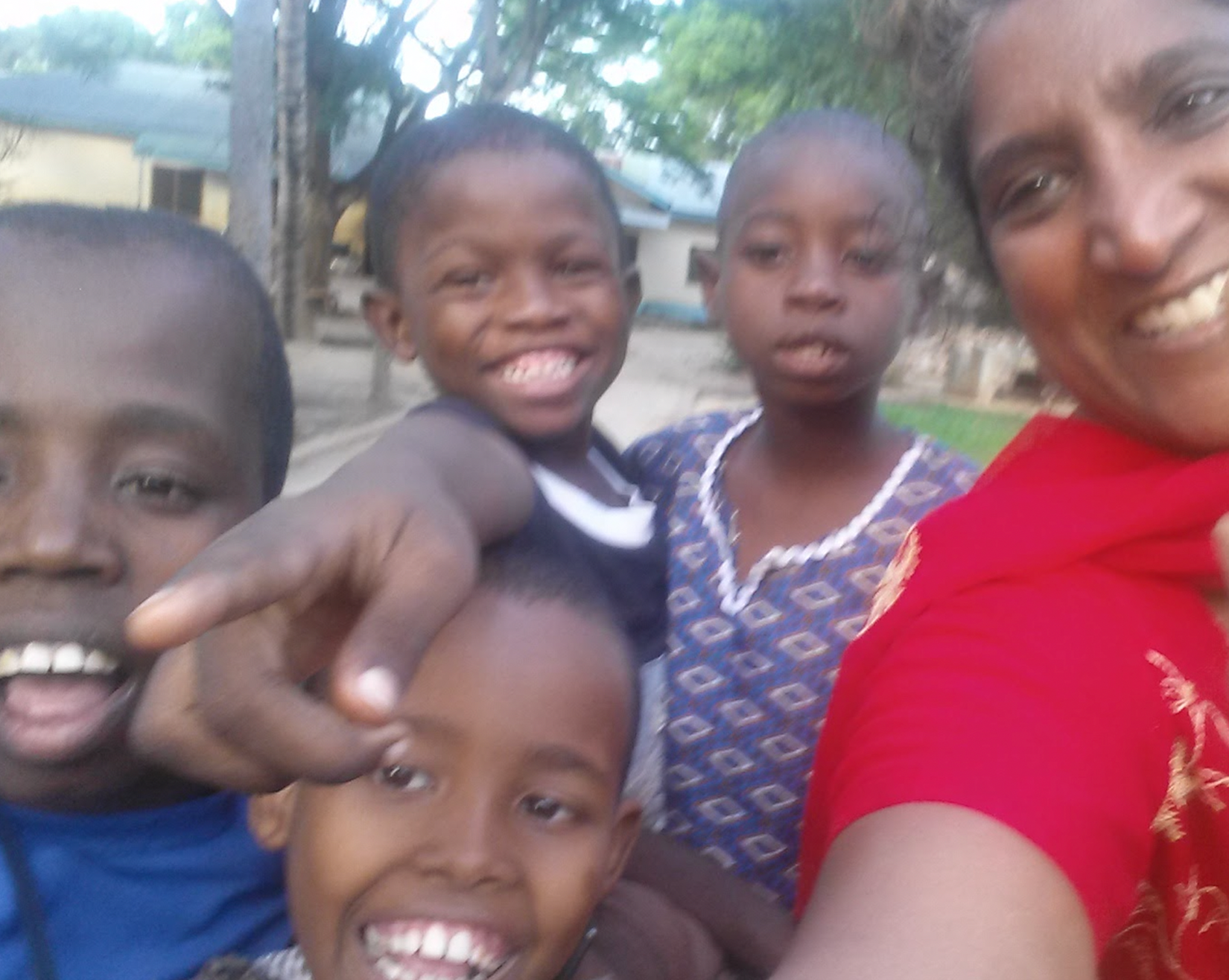



Leave a Reply